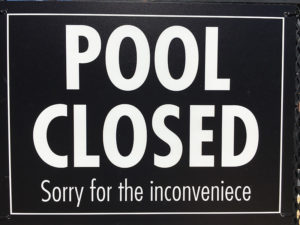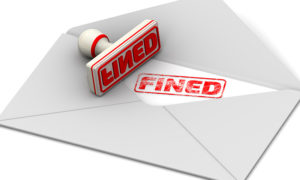HOA Fee Calculator: Setting A Fair Fee For Homeowners

Part of the HOA board's job is to prepare the budget and calculate HOA fees for the coming year. Unfortunately, not everyone knows how to do this. You don't need an HOA fee calculator — the process is easy if you know where to begin.
Browse By Category
Sign up for Our Newsletter
Part of the HOA board’s job is to prepare the budget and calculate HOA fees for the coming year. Unfortunately, not everyone knows how to do this. You don’t need an HOA fee calculator — the process is easy if you know where to begin.
Computing HOA Fees: No HOA Fee Calculator Necessary
For most HOAs, October means the beginning of the budget season. And that means regular dues may increase — and your board could be facing some less-than-fun questions and upset over the increases.
The problem often stems mostly from the board failing to property plan for each year’s budget. They might base the HOA assessment on budget factors that aren’t really relevant, such as a percentage shown in the community documents or the cost of living in the association. On the other hand, another problem is board members deciding not to raise the assessments at all for fear of making an unpopular decision.
The core issue here, however, is that most homeowner associations just don’t understand the right amount to charge for assessments. Although the procedure on how to calculate HOA fees typically lies within the bylaws, there are some other things you must take into consideration.
How to Determine HOA Fees
 Bottom line: Nobody is excited about having to pay higher assessments, even board members.
Bottom line: Nobody is excited about having to pay higher assessments, even board members.
So, you have to first look at the association’s budget areas: Expenses, income, and reserves. You must make sure your HOA is covered in each of these areas for the next year.
A homeowners association has a responsibility to maintain and repair all common areas within the community. Maintenance and repair services don’t come free. The board needs to get that money from somewhere. And while the HOA can have other fundraising activities, its main source of income is the HOA fee.
When planning your budget, it’s important to take everything into account. What type of vendor services do you need this coming year? Do you expect to pay more or less than before? The usual items to consider are:
- Maintenance and repairs
- Utilities
- Employee salaries
- Vendor services
- Insurance
- HOA management fees
- Reserve funds
You’ll then want to calculate the overall income needed from your homeowners so you can calculate HOA assessments. So, you’ll add up total budgeted expenses, the total contribution to the reserve, and all miscellaneous income.
Then, to determine how much each owner will pay per month, take the total in assessments you calculated and divide that number by the number of homes in your association. Then divide that number by how many assessments there will be (such as 12 for each month of the year).
Some associations use an HOA fees calculator based on the size of the property. For instance, a resident with a larger property may pay more than a resident with a significantly smaller property. Others divide the assessments equally. Make sure to check your bylaws to know how you should divide HOA dues.
Can an HOA Raise Monthly HOA Fees?
Do HOA fees go up? In a word, yes. An HOA does have the right to raise HOA assessments if the need arises. However, there are limits to how much an HOA can increase dues. Some HOAs have these limits defined within their governing documents. But, there are also state laws concerning the increase of HOA fees.
For instance, in Arizona, an HOA can’t raise dues by more than 20 percent every year without getting a majority vote from the community. So, make sure to check your state laws and governing documents to ensure you remain in compliance with them. This way, you can avoid running into any legal trouble.
A Few Other Considerations
Be sure NOT to count any leftover money (surpluses). When making your budget, do so like there was no money left over from the year before. While an HOA is a not-for-profit organization, taking retained earnings into account for your coming year’s budget can spell disaster in the long run. Your operating funds might come up short in the end.
Also, don’t forget to consider owner delinquencies. If your community has quite a few, you might have to add an extra income allowance so you don’t come up short on income that will cover the reserve and expenses. In this case, your assessments might have to be higher.
The Consequences of Low HOA Dues
 While lowering your HOA assessments may get you some brownie points among homeowners, the move may cost you in the end. Setting HOA dues that are too low might result in insufficient funds for your HOA.
While lowering your HOA assessments may get you some brownie points among homeowners, the move may cost you in the end. Setting HOA dues that are too low might result in insufficient funds for your HOA.
This will inevitably lead to inadequate maintenance of common areas and a diminished curb appeal. In turn, property values may plummet, and homeowners aren’t going to be happy about that either.
Additionally, by lowering HOA dues, you might open the association up to liability. Some federal and state laws require an HOA to keep various infrastructures up to a certain standard. By reducing fees, your HOA may not be able to afford maintenance and repairs for these infrastructures. Homeowners can file a lawsuit against your board or the HOA.
Finally, if you set assessments too low, you’ll likely end up either cutting costs or asking for more money throughout the year. When your operating funds run low and expenses start to pile up, your HOA board may be forced to levy special assessments. And, for many residents, special assessments are something they’d like to stay away from.
HOA Fee Calculator: Frequently Asked Questions
Apart from how is HOA calculated, here are some other questions homeowners in HOA communities commonly ask:
What is an HOA fee?
An HOA fee is a fee homeowners associations charge on a regular basis, typically monthly or annually, to all its members (i.e. homeowners).
What do HOA fees cover?
Your HOA fee includes the cost of day-to-day operating expenses, such as maintenance of common areas, insurance, landscaping, management fees, and other services. These dues also cover reserve fund contributions.
How much are average HOA fees?
It depends on a number of factors such as where you live, the type of HOA you have, and the nature of your common areas. For instance, single-family associations typically charge $200 to $300 a month, but that amount can increase according to your location. Some of the most expensive cities for HOAs are San Francisco ($463), Long Island ($498), and New York ($571).
Do you have to pay HOA fees?
As a homeowner, you do have an obligation to pay HOA fees, as stipulated within the association’s governing documents. Homeowners are provided with disclosure documents consisting of the HOA bylaws, CC&Rs, and rules and agree to abide by these documents when they buy the house.
Why are HOA fees so high?
HOA fees too high? A few things can affect rising HOA dues. For instance, if the cost of vendor services increases, then your HOA dues will naturally follow. Inflation, climbing wage rates, delinquent homeowners, and costly insurance premiums can also impact your HOA fee calculator. If your HOA is trying to reach a particular level of reserve funding, that may also play a part.
How can I avoid paying HOA fees?
Many homeowners want to know how to get out of paying HOA dues. But, since HOA fees are mandatory, there is no way to get out of paying them apart from selling the house. And, even then, if you have unpaid HOA dues, associations can still sometimes go after you to collect.
The best way to avoid this problem is to thoroughly check the HOA’s governing documents prior to buying a home. In doing so, you can back out of the sale if you don’t want to pay monthly dues.
Can you negotiate the HOA fee?
Homeowners may certainly try to negotiate a lower HOA fee, but there’s no guarantee that it will work. If a homeowner is having trouble financially, they may ask the HOA board for consideration. In some cases, the board can offer to set up a payment plan for the homeowner.
What happens if you don’t pay HOA dues?
 The consequences of not paying HOA dues can vary from association to association, depending on what state laws and their governing documents permit. In general, homeowners can expect to suffer one or more of the following penalties as a result of defaulting on their dues:
The consequences of not paying HOA dues can vary from association to association, depending on what state laws and their governing documents permit. In general, homeowners can expect to suffer one or more of the following penalties as a result of defaulting on their dues:
- The HOA may charge a compounding late fee on top of the principal amount owed.
- Homeowners may have their privileges suspended, which often means they can’t enter or use community amenities.
- The HOA may refer the delinquent account to a third-party collection agency.
- The HOA may file a lawsuit or take the homeowner to small claims court in an attempt to collect.
- A lien may attach to the delinquent homeowner’s property, and the HOA can subsequently initiate foreclosure proceedings.
Can HOA raise dues without a vote?
It depends on what your state laws and governing documents have to say about the matter. Some associations don’t require approval from the membership to raise dues, while others require it when raising dues by a certain percentage.
Incorrect Calculations Have a Domino Effect
How are HOA fees calculated? You don’t need a fancy HOA fee calculator to do it. As you can see, it all starts with timely and accurate budget preparation. By failing to plan your budget properly, you run the risk of undercharging your residents. This, in turn, will lead to a shortage of funds and the possibility of special assessments.
If you can’t impose special assessments, a lack of funds will eventually lead to poor maintenance of the community. As a result, your HOA and its members will suffer.
Use this advice to help you calculate HOA assessments this year. If you’re prepared and understand why the fees are there, it’s easier for you or your HOA manager to explain to your owners what’s going on. And that will help keep them more satisfied and trusting of your judgment.
Don’t have an HOA manager yet? No worries. Start looking for one today with the help of our online directory.
RELATED ARTICLES:
- How to Collect Unpaid HOA Fees At ClosingWho Pays HOA Fees at Closing?
- Should Homeowners Contribute to HOA Reserves? Why Or Why Not?
- HOA Budget Best Practices Every Board Member Should Know
Trending Now
Related Article
Sign up for Our Monthly Newsletter
Sign up below for monthly updates on all HOA Resource

















